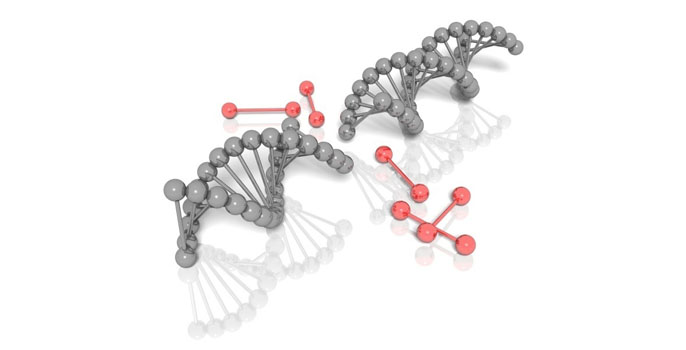DNA
-

‘Detangler’ binds, bends and cuts DNA
New details on the DNA-cutting activity of topoisomerase II, a target of anti-cancer drugs, could lead to better chemotherapeutic agents. Read MoreMar 2, 2012
-

Offspring of childhood cancer survivors have no increased risk for birth defects
Children of childhood cancer survivors who were treated with radiation or some forms of do not have an increased risk for birth defects compared to children of cancer survivors who did not receive such treatments. Read MoreDec 15, 2011
-

Fungus toxin gets in the way in DNA
Structural studies are providing insight to how aflatoxin – a toxin produced by fungi – contributes to cancer development. Read MoreOct 7, 2011
-

The Possibilities of Personalized Medicine
What if your doctor could tell by reading your genetic code which drugs were most likely to work for you, and which you should avoid, even before you try them? What if a “genetic biopsy” taken from your cancer could pinpoint the treatment most likely to kill the tumor, and… Read MoreJan 31, 2010